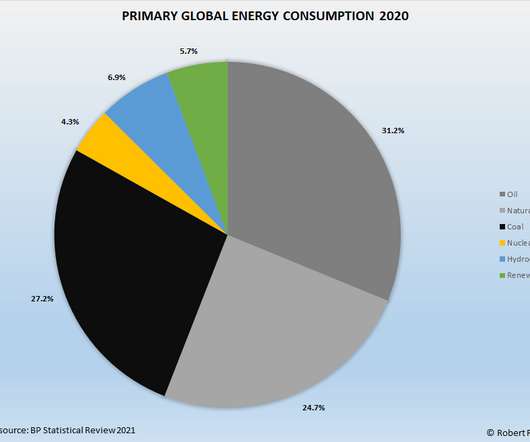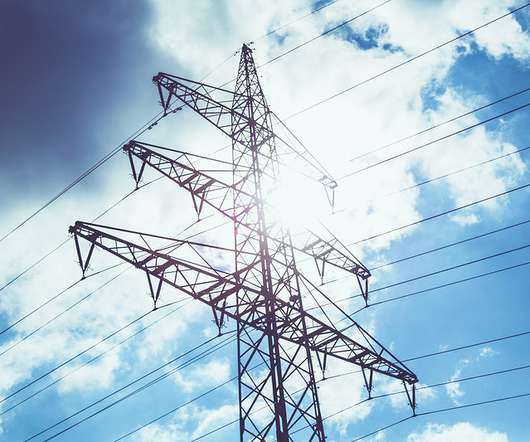Highlights From The BP Statistical Review Of World Energy 2021
R-Squared Energy
JULY 26, 2021
Small declines were also reported in coal, natural gas, and nuclear consumption, while renewables and hydropower recorded gains. The remainder of global energy consumption came from coal (27.2%), natural gas (24.7%), hydropower (6.9%), renewables (5.7%), and nuclear power (4.3%). Renewables and Nuclear Power.














Let's personalize your content